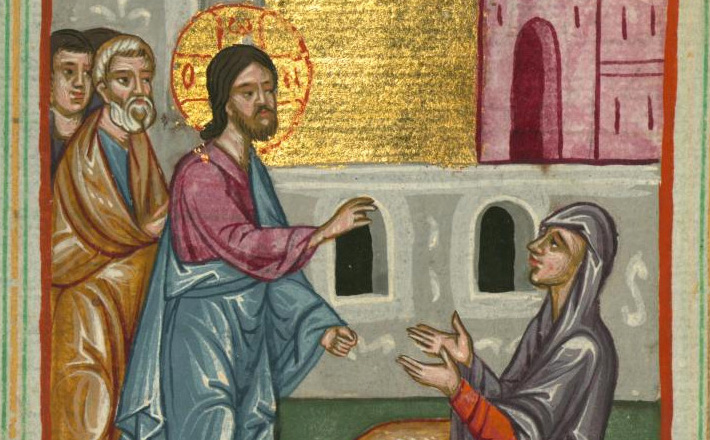Commentary on Genesis 45:1-15
Does good eventually come from evil acts?
Does God cause bad things to happen so good can come of them? These are questions that have been asked since the dawn of humanity and is also at the center of the text for today. Was the evil act of the brothers part of God’s plan so Abraham and Sarah’s family could be saved? For several weeks, the lectionary has followed the story of Abraham and Sarah’s family through the pages of Genesis. For the most part, we have read about the generations as they struggled with each other and, for the most part, God is not seen or heard. Each generation has seen estrangement and reconciliation.
First a little background: The brothers sold Joseph into slavery. The sons return and tell Jacob of Joseph’s death, while Joseph is taken to Egypt. Some years later, Joseph impressed the Pharaoh becoming his second in command (Genesis 41:41-45). When, a famine grips the region, Jacob tells his sons to go to Egypt to buy grain. They appear before Joseph who recognizes them, but they do not know it is him. Joseph does not reveal his identity; instead, he used his power over his brothers (42:9–43:34). First, he demanded they return with their youngest brother, Benjamin, and until they do he imprisoned Simeon. The brothers were sent home with the grain. Jacob would not let Benjamin go to Egypt because he had already lost two sons. But when the food ran out, and the famine was still severe, Jacob sent the sons back with Benjamin. After seeing Benjamin and sharing a meal with his brothers, they still did not know him. What happens next was either a test of the brothers or the second act of revenge, depending on how one sees it. Joseph instructs his servant to slip a silver cup in Benjamin’s sack. Joseph then confronts the brothers about the alleged theft. The brothers beg Joseph to release Benjamin and Judah volunteers to stay in his place. It was then that Joseph revealed himself to his brothers.
A close reading of the encounter is enlightening. Joseph revealed himself to his brothers and asked about his father. He then spoke to his brothers about their acts against him. Interestingly, he never forgives them. Instead, he sees their act as not of their doing, “So it was not you who sent me here, but God.” And this statement places the preacher and the hearers of this text right in the middle of the mystery of God. This question has haunted Christian believers and theologians — does God cause things to happen, especially bad things? Is God pulling the strings of our lives? Here Joseph stated exactly how he understood the events that brought him to Egypt. We never know how the brothers think Joseph’s interpretation. It is not part of the narrative.
The problem with wading into this text and this question as a preacher is there remains no simple or even complex answer to the question. For centuries, theologians have discussed God’s participation in human events. Preachers are also often quick to make theological hay by interpreting a disaster or act of violence as God’s punishment on a sinful people. This was a focus of some preaching using the AIDS epidemic, and Sept. 11, 2001, and Hurricane Katrina as examples. The problem with this type of theology is that God’s punishment, action, or inaction are not that simple to interpret. One could ask if Hurricane Katrina was God’s punishment then why were the poor and disabled the most impacted. The reasoning appears to be faulty. Yet this type of theology makes the news and stands unchallenged by saner voices in our culture. In the midst of fear, people can be tempted to believe we can understand these events, to interpret these signs and know that God caused them. This is one opportunity to discuss and challenge this theology.
Another way of understanding this text is from a psychological approach. Humans seek to make meaning from the world. We also know bad, and as is the case here, hateful things happen. Joseph focused on the good that came from his brothers’ evil act, instead of remaining angry over the act itself. Is this optimism God’s work in our lives? Yes, but as with the above example, the outcome is not a simple formula. Therapists know that seeing the good in a bad situation can be good for the patient. However, when one sees the good too often, more damage and harm can come. This is true of an abuse situation or other complex psychological issues. Just as with the above example, our reasoning does not fit. God cannot be forced into our ways of thinking.
So if there is no answer, then why tackle the topic? First, we all think about it. How are the events of life and God’s will related? Second, how often do we talk about it among the faithful? Joseph’s words provide an opportunity for such reflection. But the topic is reserved for the brave, for the preacher will be required to utter the dreaded words, “I do not know all the answers to God’s ways.”
Both of the examples above require a balance. A theology can affirm how God works in the pain of this world to bring good. Likewise, understanding the psychological perspective is helpful, but only if it is not taken to extremes. This week’s Genesis reading leaves us deep in the mystery of God and God’s interactions with humans. Some folks see God directing their lives, while others express God’s presence in other ways. We all must come to terms with this question; some will be comfortable with Joseph’s theological speech and others will not. The great benefit of the text is the opportunity to ponder what we believe and why.


August 20, 2017